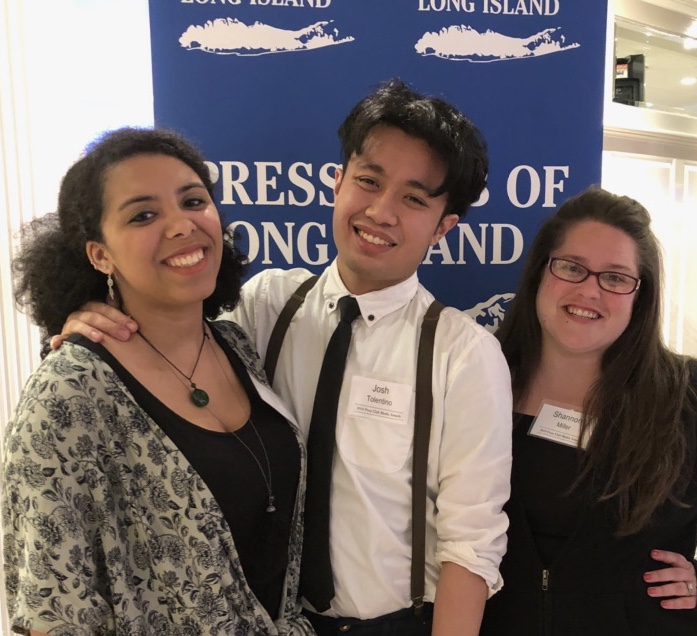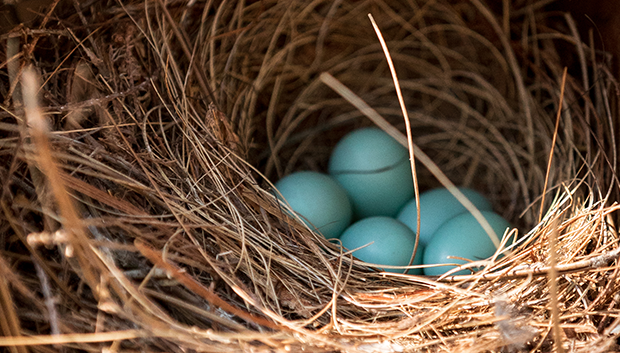The unique bond between humans and animals is the focus of a special two-part Hutton House lecture featuring the insight of Dr. Robin Sturtz, Director of the Veterinary Technology Program at the School of Health Professions and Nursing at LIU Post.
“Humans and animals have been an important part of each other’s lives for millennia,” said Dr. Sturtz, a feline veterinarian. “Animals have been worshipped as gods, taken in as family members, and sometimes have suffered for their association with us.”
In the first lecture, held on Jan. 30, Dr. Sturtz discussed how humans have used other animals for work, sustenance and companionship, and how the human-animal connection benefits both human and animal health. She also addressed the “dark” aspects of the relationship, in particular the association between domestic violence and animal abuse. The second lecture, which will take place on Feb. 13that 1 p.m. in the Krasnoff Theatre at Hillwood Commons, will focus on service animals, featuring a presentation by Grete Eide, chief canine care officer of the Guide Dog Foundation for the Blind.
“We will talk about how we train animals to assist humans with special needs, how this benefits both the animal and the human, and the wide range of physical, intellectual and psychological challenges we can help to lighten,” explained Dr. Sturtz, adding that this lecture will mention primates, birds and other animals besides dogs.
“For those of us who are stressed—which is probably most of us—the good thing about companion animals is that they are generally non-judgmental,” Dr. Sturtz told her avid audience at Hutton House. “If you’re happy, sad or angry, your animal is just going to be happy to see you. They don’t really care, and they’ll do their best to lighten things up.”
But she cautioned her listeners not to ascribe human thought processes to other animals.
“Cats and dogs do not seek revenge,” she said. “It’s not like an animal sits there and says, ‘You know, I’m really annoyed that I didn’t get my dinner on time! I’m going to urinate on the couch!’ It doesn’t work that way.” She added that urinary tract infections are the number one cause of cats’ going outside their litter box.
When she was asked to pick the smartest dog breed, this vet demurred.
“Intelligence in an animal consists of being sensitive to what’s going on around it, knowing what’s expected, and anticipating what will be expected,” Dr. Sturtz said. “I don’t know if I would call it breed specific because it really depends on the animal…on what information they’ve been given throughout their lives.”
Some guide dogs have learned how to understand sign language, she pointed out, enhancing their communication ability. Generally speaking, animals’ responses to human body language can vary tremendously.
“Some behaviors that you would think are very inviting actually can be very threatening,” said Dr. Sturtz. “The last thing you want to do if you’re with a dog or a cat that doesn’t know you is reach down to pat their head! Why? Because all they see is a big human hand!”
She cited two other examples of “counter-intuitive behavior” to watch out for: “If a cat is wagging its tail, is it happy?” Dr. Sturtz asked rhetorically. “No! That’s a cat who’s either fascinated, because sometimes that happens, but usually it means: ‘Get out of my way before I’ll bite you.’ If a dog shows its teeth, it’s not usually showing off its last dental cleaning! It’s probably telling you that it’s not in the mood.”
Pit bulls, she wanted to reiterate, are not inherently aggressive. “We breed that into them,” she said. “It’s environmental, rather than hereditary.”
Animal abuse is often associated with human abuse, according to Dr. Sturtz. “In homes where there’s domestic violence and there’s a companion animal, the animal will often serve as a locus for the abuser’s attention,” she said. “The abuser will threaten to lock up all the food and not allow the family to feed the dog unless the abuser gets what he or she wants—and frankly that’s the most mild of the stories.”
In the veterinary profession, the development of hospice and palliative care as well as euthanasia also springs from the bonds humans have forged with their animals.
“What we do is provide for a humane passing for an animal who is suffering and whom we cannot help medically,” said Dr. Sturtz. “I’ve been a veterinarian for 15 years, and it’s upsetting every time. You don’t show it, because that does not help the family, so you wait until they leave and then you go in the back. By the same token, euthanasia is a blessing because at least there’s something we can do for them and for the family.”
Dr. Sturtz reminded her listeners that “consistent, positive interaction is what builds the human-animal bond. All you need is love—it’s really true.”
To view Hutton House Lecture’s winter catalog, visit the website at webapps.liu.edu/HuttonHouse
![me and tonkinese[3]](http://headlines.liu.edu/wp-content/uploads/2019/02/me-and-tonkinese3.jpg)


